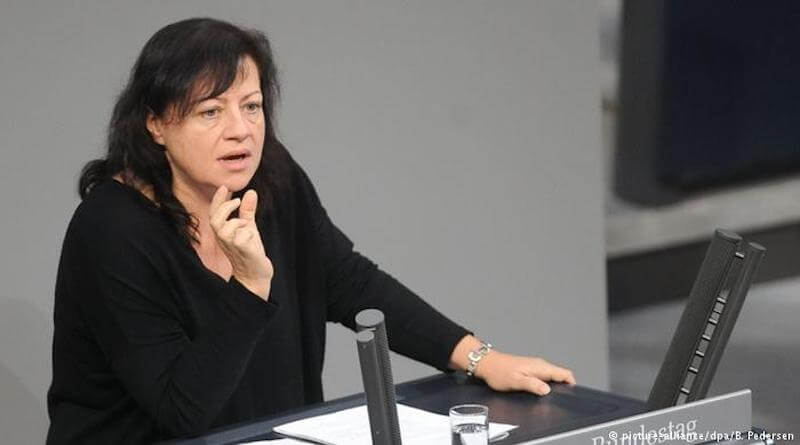 Dr Bärbel Kofler, the German Federal Government Commissioner for Human Rights Policy and Humanitarian Aid, visited Tibet from December 6 – 7, where she chaired the German-Chinese Human Rights Dialogue in Lhasa. Few foreigners are allowed to visit Tibet. The last Germany-China bilateral human rights dialogue was held in Germany in 2016; the 2017 dialogue, due to be held in China,was cancelled by China.
Dr Bärbel Kofler, the German Federal Government Commissioner for Human Rights Policy and Humanitarian Aid, visited Tibet from December 6 – 7, where she chaired the German-Chinese Human Rights Dialogue in Lhasa. Few foreigners are allowed to visit Tibet. The last Germany-China bilateral human rights dialogue was held in Germany in 2016; the 2017 dialogue, due to be held in China,was cancelled by China.
The Associated Press quoted Ms Kofler as saying in advance of her visit that she had wanted to travel to Xinjiang in north western China, where an estimated one million members of the Turkic Muslim Uighur minority have been held in political re-education camps, but her request was refused. She is reported by the Associated Press as stating“I am shocked by reports of the treatment of the Turkic Uighur minority,” and that she would “continue to push for permission to visit Xinjiang soon”.
Regarding her visit to Tibet, the report quotes her as saying that conditions in Tibet give her “great cause for concern” due to restrictions on traditional Buddhist culture and “excessive controls.”,
In a statement issued before the visit, Dr Kofler highlighted the issues she intended to raise, noting that the human rights situation in China has “increased in seriousness recently”. She noted that those particularly affected are “the critical voices in civil society – human rights lawyers, journalists and bloggers”.
She stated that Tibet was appropriate place for human rights dialogue in the light of the critical human rights situation there. She held that “There are numerous reports of excessive controls, punishment of relatives for the crimes of family members, prohibition of normal religious freedom and “patriotic education” which give me great cause for concern.”
Thinlay Chukki , an official for the Tibetan Government-in-exile, is quoted by tibet.net as saying “We hope that this dialogue will help build regular and close exchanges between the two countries to address the rights situation in all the regions [in China] and in particular the gross human rights violations in Tibet.”
The Tibetan Review said of this visit, “China routinely rejects all criticisms of the human rights situation in Tibet by claiming they were not eye-witness accounts, insists that critics should visit the region to see the situation themselves. But then it hardly ever allows such a visit. And the rarely permitted visits are strictly chaperoned after elaborate preparations of sites and tutoring of prearranged meeting partners with a design to ensure positive coverage.”
Although the international press covered the fact that the visit was to take place, there does not appear to be follow-up coverage of what took place during the visit, or the talks that she chaired in Lhasa.




 Print
Print Email
Email